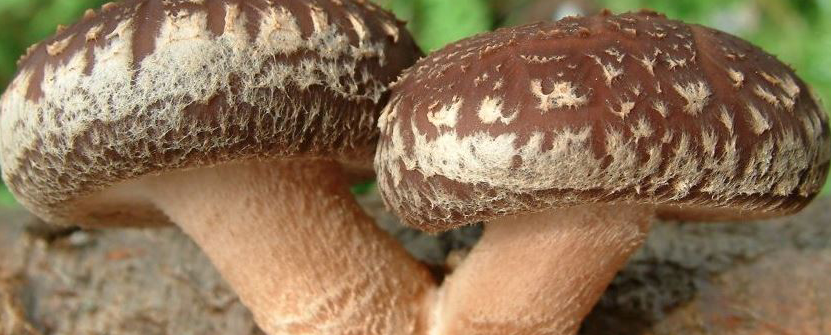Shiitake mushrooms are one of the most popular and widely cultivated mushrooms in the world. They have a rich, savory flavor and a meaty texture that makes them a delicious addition to many dishes. But shiitake mushrooms are not only tasty, they are also packed with nutrients and health benefits that can improve your well-being. In this blog post, we will explore some of the amazing benefits of shiitake mushrooms and how you can incorporate them into your diet.
What are shiitake mushrooms?
Shiitake mushrooms (Lentinula edodes) are edible fungi that belong to the Basidiomycota phylum. They are native to East Asia, where they grow naturally on decaying hardwood trees, especially oak and beech. Shiitake mushrooms have been used for food and medicine for over a thousand years in China, Japan, Korea, and other Asian countries.
Shiitake mushrooms have brown caps that range from 2 to 5 inches in diameter, and cream-colored gills underneath. They have a distinctive umami flavor, which is often described as savory or meaty. Umami is considered the fifth taste, along with sweet, sour, bitter, and salty.
Shiitake mushrooms can be found fresh or dried in most grocery stores and markets. Dried shiitake mushrooms have a more intense flavor and need to be rehydrated before cooking. Shiitake mushrooms can also be taken as dietary supplements in the form of capsules, powders, or extracts.
What are the nutritional benefits of shiitake mushrooms?
Shiitake mushrooms are low in calories and fat, but high in fiber and protein. They also provide many vitamins and minerals that are essential for your health. According to the USDA National Nutrient Database, one cup (145 grams) of raw shiitake mushrooms contains:
- Calories: 81
- Fat: 0.3 grams
- Carbohydrates: 21 grams
- Fiber: 3 grams
- Protein: 2.2 grams
- Vitamin B1 (thiamine): 0.1 mg (8% of the Daily Value or DV)
- Vitamin B2 (riboflavin): 0.5 mg (38% of the DV)
- Vitamin B3 (niacin): 5.9 mg (37% of the DV)
- Vitamin B5 (pantothenic acid): 2.6 mg (52% of the DV)
- Vitamin B6 (pyridoxine): 0.3 mg (18% of the DV)
- Vitamin B9 (folate): 44 mcg (11% of the DV)
- Vitamin C: 3.5 mg (4% of the DV)
- Vitamin D: 18 IU (5% of the DV)
- Copper: 1.3 mg (144% of the DV)
- Iron: 0.4 mg (2% of the DV)
- Magnesium: 20 mg (5% of the DV)
- Manganese: 0.3 mg (13% of the DV)
- Phosphorus: 120 mg (17% of the DV)
- Potassium: 304 mg (6% of the DV)
- Selenium: 36 mcg (65% of the DV)
-
- Zinc: 1.3 mg (12% of the DV)
As you can see, shiitake mushrooms are especially rich in B vitamins, which are vital for energy production, metabolism, nerve function, and skin health. They also contain high amounts of copper and selenium, which are important for blood vessel health, immune function, antioxidant defense, and thyroid function.
What are the health benefits of shiitake mushrooms?
Besides being nutritious, shiitake mushrooms also have various bioactive compounds that can benefit your health in different ways. Some of these compounds include polysaccharides, terpenoids, sterols, lipids, and eritadenine. Here are some of the health benefits that shiitake mushrooms can offer:
Improve heart health
Shiitake mushrooms may help lower your cholesterol levels and prevent cardiovascular diseases. One of the compounds responsible for this effect is eritadenine, which inhibits an enzyme involved in cholesterol synthesis in the liver. Studies have shown that eritadenine can reduce total cholesterol, LDL cholesterol (the "bad" kind), and triglycerides in rats and humans.
Another compound that may benefit your heart health is beta-glucan, a type of soluble fiber that can lower cholesterol levels by binding to bile acids in your intestines and preventing them from being reabsorbed into your bloodstream. Beta-glucan can also reduce inflammation and oxidative stress, which are risk factors for heart disease.
Support immune health
Shiitake mushrooms can also boost your immune system and help you fight off infections and diseases. One of the main immune-enhancing compounds in shiitake mushrooms is lentinan, a type of polysaccharide that stimulates the activity of macrophages, natural killer cells, and T cells. These are white blood cells that can destroy pathogens, tumor cells, and foreign substances in your body.
Lentinan has been shown to have antiviral, antibacterial, and antifungal effects in vitro and in vivo. It has also been used as an adjunct therapy for cancer patients in Japan, as it can enhance the effects of chemotherapy and radiation therapy, and reduce their side effects.
Protect against cancer
Shiitake mushrooms may also have anticancer properties, thanks to their ability to modulate your immune system and inhibit tumor growth. Several studies have demonstrated that shiitake mushroom extracts can suppress the proliferation and induce the apoptosis (programmed cell death) of various cancer cells, such as breast, prostate, colon, lung, and leukemia cells.
Some of the compounds that may contribute to this effect are lentinan, eritadenine, and lectins. Lectins are proteins that can bind to specific carbohydrates on the surface of cancer cells and trigger their death. Shiitake mushrooms also contain antioxidants that can prevent DNA damage and reduce inflammation, which are both involved in cancer development.
How to use shiitake mushrooms
Shiitake mushrooms are versatile and easy to use in your cooking. You can enjoy them fresh or dried, sliced or whole, sautéed or roasted, or added to soups, salads, stir-fries, casseroles, or pasta dishes. You can also make shiitake mushroom tea by steeping dried shiitake in hot water for 10 minutes.
When buying fresh shiitake mushrooms, look for firm, plump, and smooth caps with no signs of mold or decay. Store them in a paper bag in the refrigerator for up to a week. When buying dried shiitake mushrooms, choose ones that are thick and whole, not broken or crumbly. Store them in an airtight container in a cool, dry place for up to a year.
To rehydrate dried shiitake mushrooms, soak them in warm water for 20 to 30 minutes, or until they are soft and pliable. You can use the soaking water as a broth or sauce base, as it contains some of the flavor and nutrients of the mushrooms. Just make sure to strain it well to remove any dirt or grit.
Here are some examples of recipes that use shiitake mushrooms:
- Shiitake Mushroom Soup: A simple and comforting soup made with chicken broth, fresh or dried shiitake mushrooms, garlic, ginger, soy sauce, and scallions.- Shiitake Mushroom Risotto: A creamy and satisfying rice dish cooked with butter, onion, white wine, chicken stock, Parmesan cheese, and fresh or dried shiitake mushrooms.
- Shiitake Mushroom Stir-Fry: A quick and easy meal made with chicken or tofu, broccoli, carrots, onion, garlic, ginger, soy sauce, sesame oil, cornstarch, and fresh or dried shiitake mushrooms.
- Shiitake Mushroom Pasta: A delicious and hearty pasta dish made with spaghetti or linguine, olive oil, garlic, red pepper flakes, parsley, lemon juice and zest, and fresh or dried shiitake mushrooms.
Conclusion
Shiitake mushrooms are more than just a tasty ingredient. They are also a nutritious food that can provide you with many health benefits. Shiitake mushrooms can help improve your heart health, support your immune system, and protect against cancer.
They are also easy to use in your cooking, and can add flavor and texture to many dishes. So why not give shiitake mushrooms a try today?
You might be surprised by how much you like them!



